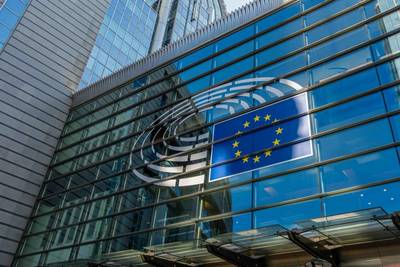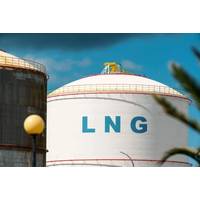European Commission to Propose Floating Price Cap on Russian Oil
The European Commission is expected to propose a floating Russian oil price cap this week as part of a new draft sanctions package in an attempt to overcome opposition from some member states, four EU diplomats said.
The Commission proposed lowering the Group of Seven (G7) nations' price cap from $60 a barrel to $45 barrel in June in its 18th package of sanctions against Russia for its invasion of Ukraine. The G7 price cap, aimed at curbing Russia's ability to finance the war in Ukraine, was originally agreed in December 2022.
The plan to lower the price cap was prompted by a fall in global oil prices, which made the current cap largely irrelevant.
Britain and the EU failed to garner support from U.S. President Donald Trump for a lower cap at the G7 leaders' meeting in Canada in June.
Oil prices briefly spiked to nearly $80 a barrel during the 12-day war between Israel and Iran in June before falling back into the $60s.
The EU is now forging ahead on its own.
The four EU sources said the Commission was drafting a mechanism that would adjust the Russia crude cap based on changes to the global oil price.
The European Commission declined to comment.
It is still being revised and envisages a more automated review process of the price cap to adjust it to global crude oil prices, one of the sources said.
It was not clear what the cap would be, but the starting point would be a little more than $45, one of the sources said.
Maritime nations like Greece, Cyprus and Malta have longstanding concerns over the price cap given the potential loss of business to their shipping sectors and fearing that shipowners could move operations outside the EU.
The cap bans trade in Russian crude oil transported by tankers if the price paid was above $60 per barrel and prohibiting shipping, insurance and re-insurance companies from handling cargoes of Russian crude around the globe, unless it is sold for less than the price cap.
During the G7 finance ministers meeting in the Canadian Rockies in May, U.S. Treasury Secretary Scott Bessent remained unconvinced there was a need to lower the cap, sources said at the time.
But Trump has toughened his rhetoric towards Russian President Vladimir Putin and has suggested he may push ahead with new U.S. sanctions.
The price cap option could gain more traction in Washington as some U.S. Senators may endorse the idea, including Lindsay Graham, who has said he supports lowering the cap.
Even if EU ambassadors manage to agree on the revised price cap mechanism, Slovakia opposes the sanctions package over its concerns around an EU plan to end Russian energy imports by 2027. EU sanctions need unanimity in order to be adopted.
(Reuters)






